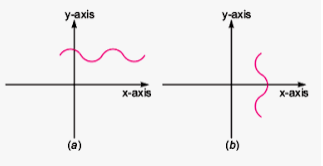In a game, a man wins a rupee for a six and loses a rupee for any other number when a fair die is thrown. The man decided to throw a die thrice but to quit as and when he gets a six. Find the expected value of the amount he wins / loses.Solution in Punjabi
Step by step video & image solution for In a game, a man wins a rupee for a six and loses a rupee for any other number when a fair die is thrown. The man decided to throw a die thrice but to quit as and when he gets a six. Find the expected value of the amount he wins / loses. by Maths experts to help you in doubts & scoring excellent marks in Class 12 exams.
Updated on:21/07/2023Topper's Solved these Questions
Similar Questions
Compute P(A∣B),if P(B)=0.5 and P(A∩B)=0.32
View SolutionWrite the element a12 of the matrix A=[aij]2×2, whose elements are given by : aij=e2ixsinjx
View SolutionWhich one of the following graph represents the function of x? Why?

View SolutionIn a game,a man wins a rupee for a six and loses a rupee for any other number when a fair die is thrown.The man decided to throw a die thrice but to quit as and when he gets a six. Find the expected value of the amount he wins / loses.
View SolutionIn a game, a man wins rupees five for a six and loses rupee one for any other number, when a fair die is thrown. The man decided to throw a die thrice but to quit as and when he gets a six. Find the expected value of the amount he wins/loses.
View SolutionIn a game, a man wins Rs. 5 for getting a number greater than 4 and loses Rs. 1 otherwise, when a fair die is thrown. The man decided to throw a die thrice but to quit as and when he gets a number greater than 4. Find the expected value of the amount he win/loses.
View SolutionIn a game, a man wins Rs 100 if he gets 5 or 6 on a throw of a fair die and loses Rs 50 for getting any other number on the die. If he decides to throw the die either till he gets a five or a six or to a maximum of three throws, then his expected gain/loss (in rupees) is:
(a) 4003 gain
(b) 4009 loss
(c) 0
(d) 4003 loss
View SolutionIn a game, a man wins a rupee for a six and loses a rupee for any other number when a fair die is thrown. The man decided to throw a die thrice but to quit as and when he gets a six. Find the expected value of the amount he "wins" // "loses" .
View SolutionIn a game, a man wins a rupee for a six and loses a rupee for any other number when a fair die is thrown. The man decided to throw a die thrice but to quit as and when he gets a six. Find the expected value of the amount he "wins" // "loses" .
View SolutionIn a game, a man wins a rupee for a six and loses a rupee for any other number when a fair die is thrown. The man decided to throw a die thrice but to quit as and when he gets a six. Find the expected value of the amount he "wins" // "loses" .
View SolutionIn a game, a man wins a rupee for a six and loses a rupee for any other number when a fair die is thrown. The man decided to throw a die thrice but to quit as and when he gets a six. Find the expected value of the amount he "wins" // "loses" .
View SolutionIn a game, a man wins a rupee for a six and loses a rupee for any other number when a fair die is thrown. The man decided to throw a die thrice but to quit as and when he gets a six. Find the expected value of the amount he "wins" // "loses" .
View SolutionIn a game, a man wins rupees five for a six and loses rupee one for any other number, when a fair die is thrown. The man decided to throw a die thrice but to quit as and when he gets a six. Find the expected value of the amount he wins/loses.
View SolutionIn a game, a man wins Rs. 5 for getting a number greater than 4 and loses Rs. 1 otherwise, when a fair die is thrown. The man decided to throw a die thrice but to quit as and when he gets a number greater than 4. Find the expected value of the amount he win/loses.
View SolutionIn a game, a man wins a rupee for a six and loses a rupee for any other number when a fair die is thrown. The man decided to throw a die thrice but to quit as and when he gets a six. Find the expected value of the amount he wins / loses.
View SolutionA man wins a rupee for head and loses a rupee for tail when coin is tossed. Suppose that he tosses once and quits if he wins but tries once more if he loses on the first toss. Find the probability distribution of the number of rupees the man wins.
View Solution
